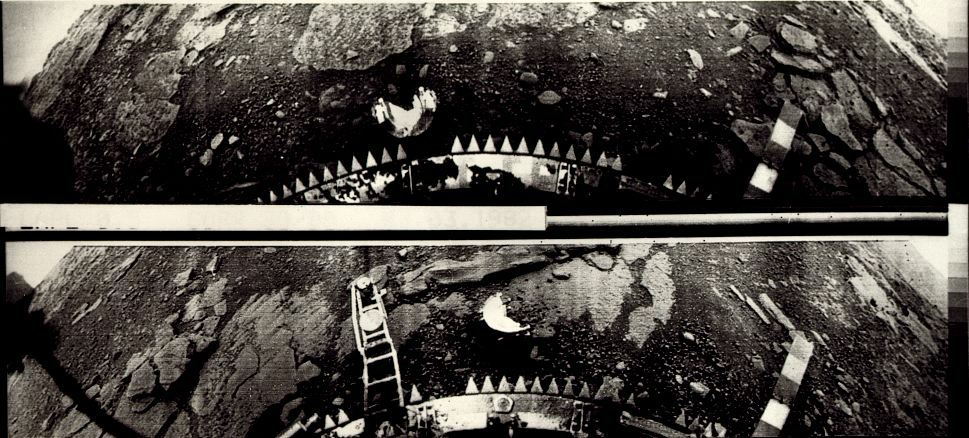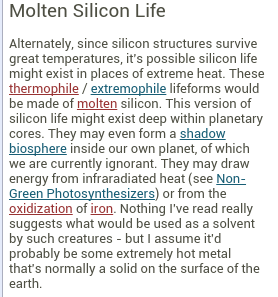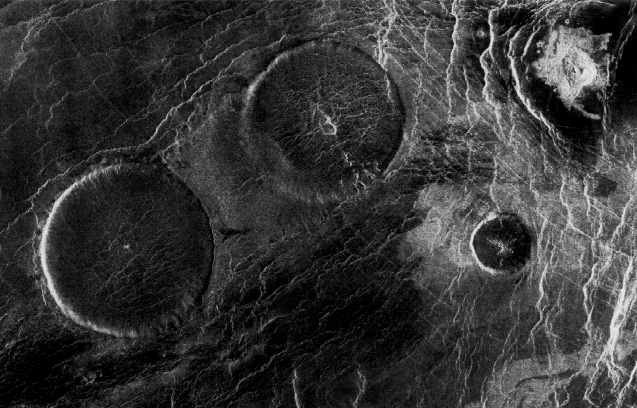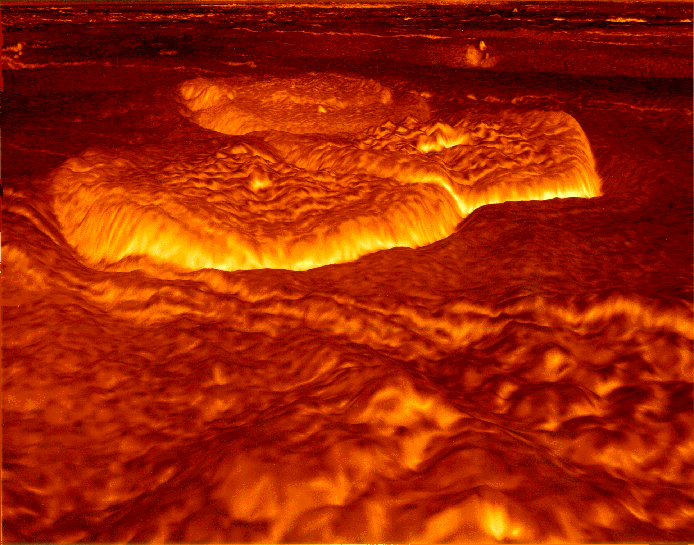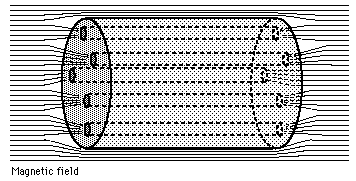 |
| Scorpion spotted on Venus |
Silicon based Life on Venus? A Scorpion like living object appeared 90 minutes after the camera had started, and moved for 26 minutes until disappearing where a groove in the ground surface rocks was identified. Silicates are common in bare outcroppings of Venus rocks that cover 75% of the young newly formed surface. Silicon based life on Venus could be favorable beneath widespread deep surface fractures and fissures, that reach up to form surface grooves like where the scorpion vanished. A sea of molten easily deformable viscous liquid silicates and minerals provides nutrients and conditions for silicon based life. NASA fails to explain the scorpion, and discredits new higher resolution observations, so that public society won't want to change beliefs of current scientific dogmatic agendas, like the big-bang and life in the universe. Moving 0.1 to 0.5 meter objects could bridge the gap between inorganic matter having living properties and living organic matter, known only as carbon based organic molecules by us on earth. They cannot be mere glitches or moving panaromic camera reflections, because the designers of the Venus probes do not believe in glitches, and are left to believe Ksanfomality. NASA hasn't even analyzed any of the enhanced images in the painstakenly detailed manner that Ksanfomality has, so NASA should not discredit a famous scientist. The article was published by the Space Research Institute that has a Space Plasma Physics investigation which states "roughly 99% of matter in the galaxy is in the PLASMA state."
Russian scientist Ksanfomality has been analyzing recorded images with better new software from the Venera-13 Venus landing probe. Ksanfomality states "a shape shifting disk", black flap patch", and a scorpion object structure, seems to emerge, fluctuate and disappear in various other photos from a variety of other landing locations over time." Ksanfomality says "Let's boldly suggest that the objects morphological features allows us to say that they are life forms living on Venus." "These strange moving objects have properties of living beings, and Ksanfomality believes that there are large terrestrial arachnids crawling on the surface of Venus, along with other life forms. The objects measured between 0.1 and 0.5 meters were constantly moving over time. This has nothing to do with what NASA says are landing parts resembling a disk. Only Ksanfomality has seen the actual moving objects, who states "The first article published july 2011 is a small part of findings. The second paper will be much more interesting, and has been submitted to a journal where together with new spotted objects a question on the liquid stuff on Venus is raised. I have enough findings for many papers." states Ksanfomality in an interview in January 2012. First paper July 2011: Venus as a Natural Laboratory for Search of Life in High temperature Conditions: Events on Venus March 1, 1982 (Ksanfomality). The Possible Emergence and Evolution of Life are Restricted by Characteristics of the Planet (Ksanfomality)
New Imagery in 2009 of the 1982 Venera 13 landing probe photos shows better resolution details that led Ksanfomality to state alien life exists on Venus
 |
| Arrows point to Venus Life |
 |
| Living 150 millimeter Scorpion made of MOLTEN MAGMA traveling by surface fissures? |
Photos are also on Wikipedia showing different landing locations on Venus
Silicon based life associated with carbon-silicon nanotubular arrays in cold outer space
Volcanoes are common on Venus, with open surface fissures. Molten magma containing minerals and silicates beneath the surface of Venus, supply nutrients under favorable conditions that support silicon based life. The scorpion vanishing where a groove or fissure extends beneath the surface, are where the habitats of these creatures thrive beneath the surface.
Could Arachnoids be Formed by Living Colonies on Venus?
ARACHNOID SPIDERY WEB on Venus : RADAR ECHOES discovered ARACHNOIDS of UNKNOWN geological formation that resemble a spider's web without any volcanism and featuring several concentric ovals surrounded by a complex network of RADIAL FRACTURES. All known arachnoids might share a common origin and form by different processes. Radiating patterns of cracks probably formed by upwellings of magma beneath the surface. If silicon based life exists on Venus, these mysterious ARACHNOIDS could have a BIOLOGIC origin by magma reaching the surface and cooling through cracks and open fissures that reach far below the surface.
Pancake Domes form Clusters like Living Colonies of Cells made of Organosilicates
PANCAKE DOMES on Venus highlands could have been formed by living silicon based colonies inside, just beneath their surface. No geologic processes could really naturally produce so many intricately detailed shapes that are all replicated the same 25 km wide and 1 mile high, and also form clusters. "It would require many coincidences to produce extraordinary 25 km circularity in just one dome." The pancake dome formation is uncertain but likely made of Sticky lavas that are granitic, not basaltic like in earth's ocean floor, and silica-rich, formed by lots of recycling of the crust. Recycling of material inside the pancake domes is an indication of living processes.
Molten Living Silicon Life is composed of Silicone chains of molecules, which are hydrogen compounds that contain silicon instead of carbon. Silanes are silicon hydrogen compounds that grow favorably as COLONIES. Favorable conditions are on Venus to support silicon based life: (1) Extremely high temperatures everywhere, with dense atmospheric gases causing high surface pressures where abundant carbon dioxide is near the supercritical state to become a surface liquid. (2) Lack of Oxygen and Water, both in ppm. (3) Liquid Sulphuric acid H2SO4 is in clouds 45-75 km above the surface. (4) Carbon dioxide 96.4% and Nitrogen N2 3.5%, with some CO2 that might be near the supercritical state for life. (5) Iron pyrite in the Highlands. The N to Si ratio mostly determines whether Carbon or Silicon life forms. Iron availability increases the strength and stability of ORGANOSILICATES.. The Aphrodite Terra Highlands is as large as Africa, and composed of brightly reflective metallic compounds, believed to be abundant iron pyrite or "fool's gold." Iron pyrite is unstable on plains, but stable on all bright highlands. These minerals along with other exotic metallic compounds are in the Venusian highlands. Earth's core might also contain silicon based life.
Hundreds of mysterious dark spots were discovered in 2014 in the Venusian Ovda Regio highlands, that can be explained to be iron pyrite or fool's gold crystals, in the same manner as the Aphrodite Terra highlands. Iron pyrite, and other gaseous metals, probably undergo a phase change under different elevation related atmospheric conditions of temperatures and pressures. This surface phase change is described as an iron pyrite frost, and it increases the chance for silicon based life to exist on Venus, because at lower elevations metallic liquids could exist along with Organosilicates that support silicon based life.
,
Living Silicon based semiconductors growing like mountains on earth, where beneath the surface electric current flows throughout the planet's rocks




